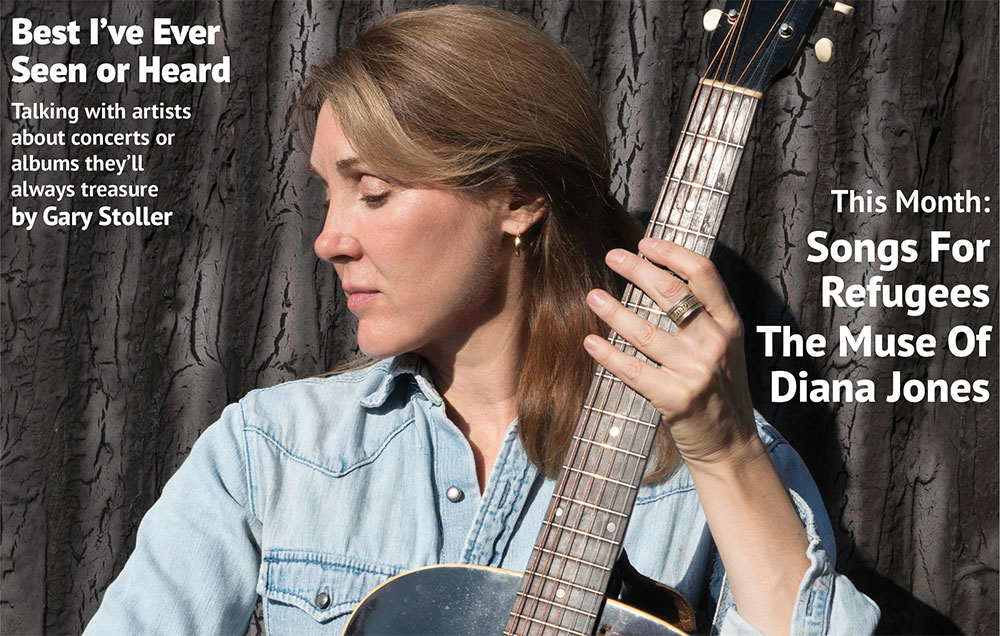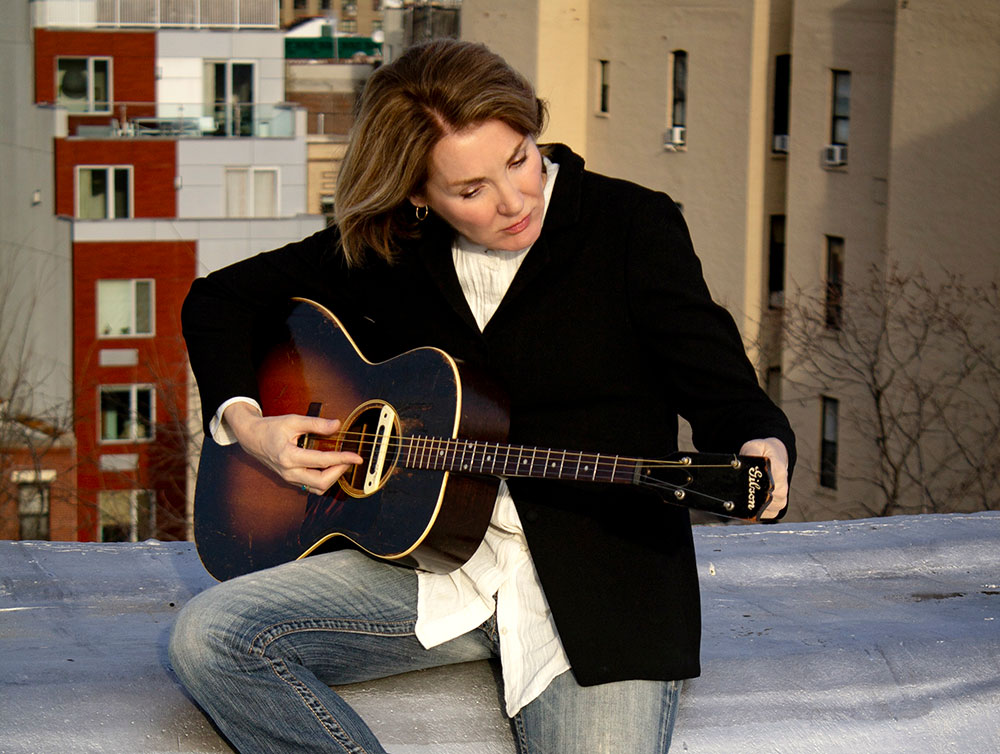
After hearing media reports of families separated at detention centers at the U.S.-Mexico border, the songs “came in a flood” for Diana Jones’ new album Song to a Refugee.
“I had just come back from tours of the U.K. and the Midwest, feeling a bit lost, like waiting in the hallway for something to move me forward,” recalls Jones. “I started writing the songs to try and make some sense in a small way, one story at a time.”
The result was a 13-song concept album that illuminates the voices and hardships of immigrants seeking a safe haven away from their native countries. The album was produced by multi-instrumentalist David Mansfield, who has played with Bob Dylan, T-Bone Burnett, Bruce Hornsby and numerous other musicians, and composed film and TV scores.
Mansfield plays guitar, mandolin, dulcimer, violin and mandocello, and the supporting cast includes Richard Thompson, Steve Earle, Peggy Seeger and the Chapin Sisters. Thompson plays guitar on three songs and contributes harmony vocals.
“Everyone I approached to join me on the record was concerned about the refugee crisis, so I guess you could say they were attracted by the stories in the songs,” Jones says.
I ask Jones, the adopted daughter of a chemical engineer, whether her upbringing or life experiences influenced her lyrics. She grew up on Long Island, moved to New Jersey and Rhode Island and developed an almost mystical attraction to rural Southern music that started to make sense in her late 20s, when she found her birth family in Tennessee’s Smoky Mountains foothills.
“I’m sure that being adopted and separated from my birth mother and birth family informed me emotionally about the issues I was writing about,” she responds. “So much of my early life was a search for home and belonging.”
During the past year, Jones, who now lives in Manhattan, became an ambassador for a grass-roots resettlement organization, Hearts and Homes for Refugees, based in Pelham, New York.
“I’ve been so inspired by the way they organize the local community to rally around helping and welcoming refugees, so everyone benefits,” she says. “I think it’s important to do what we can: raise money, give money, volunteer, begin a conversation.”
The Trump administration “was particularly punitive toward refugees, especially at the U.S.-Mexico border,” Jones says. “A lot of social justice issues have been uncovered, and we’re just beginning to deal with some of them, including the causes, immediate and historical, why there are so many Central and South Americans seeking asylum at our borders.”
I ask Jones whether she has written any songs about another pressing issue: gun violence throughout the country.
“The gun laws in the U.S. are ridiculous, and the lack of attention to gun violence is difficult to understand,” she responds. “There also needs to be better access to mental health care. I have a song about this issue, waiting maybe for the next album.”

Jones released her first album in 1997, but it was nine years later, with the release of My Remembrance of You, when she received widespread acclaim for her beautiful folk-country songs that offer a unique slice of Americana.
I wonder what albums by other artists are the best ones she has heard.
“There are so many masterpieces out there, and different albums resonate for me at different times,” she says. “If I had to name three at the moment, they would be John Prine’s first record, John Prine, Joni Mitchell’s Blue and Johnny Cash’s At Folsom Prison.”
Jones says she’s “in love” with Richard Thompson’s writing, and many of his songs — especially “Beeswing” and “1952 Vincent Black Lightning” — are favorites. She likes all his albums.
Her favorite Bob Dylan album is one few people cite as his best: his self-titled, 13-song debut album with just two original songs, released at age 20 in 1962. It’s “just him and guitar when he was just out of the gate and so strong,” Jones explains.
She cites concerts by Seeger and Thompson as the best ones she attended.
“I saw Peggy Seeger in Boston about 2010 and was moved to tears many times and to laughter,” Jones recalls. “Peggy’s rendition of ‘The First Time Ever I Saw Your Face,’ the song that Ewan McColl wrote for her, was as close as we mortals come to perfection.”
Jones also was mesmerized by the artistry of Thompson.
“Standing in the wings every night of the Richard Thompson tour I was on, listening to him sing ‘Beeswing’ solo, was an otherworldly experience I will never forget. It was a privileged vantage point, and I learned so much from Richard about focus and giving oneself up to a story and a song.”
